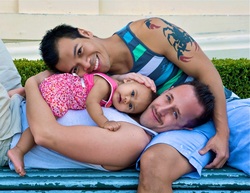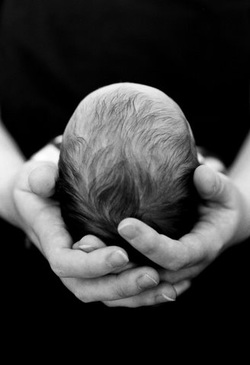
The three parents - two lesbians and the man who donated sperm for the conception of their child - agreed that all three of them would be parents. So the child's birth certificate records three legal parents.
How does that work?
Under the new (March 2013) Family Law Act, the parent(s) who intend to raise the child can include the donor, or the surrogate mother, or perhaps other people, on their child's birth certificate, provided that the donor or the surrogate has made an agreement with the parents who intend to raise the child. The three parents do not have to live together.
A child has rights of child maintenance, and of inheritance, from all their parents.
Note that a donor of sperm is NOT automatically a parent. The law is explicit about that.
So this is a question of choice.
There is a catch, though. To be eligible to register more than two parents, the additional parent(s) must have a written agreement with the child's parents MADE BEFORE THE CHILD IS CONCEIVED.
What if you have a pregnancy in progress, and decide after the pregnancy has begun that you want the donor, or the surrogate mother, to be a legal parent?
In that case, the law provides that you can make an application to court to have the third parent added to the birth certificate. Since there have not been any applications of this kind in BC yet, it is hard to predict what factors a court will take into account, but a court must make the best interests of the child its only consideration.
You can read more about the provisions of the Family Law Act in our booklet "Choosing Children".




 RSS Feed
RSS Feed
